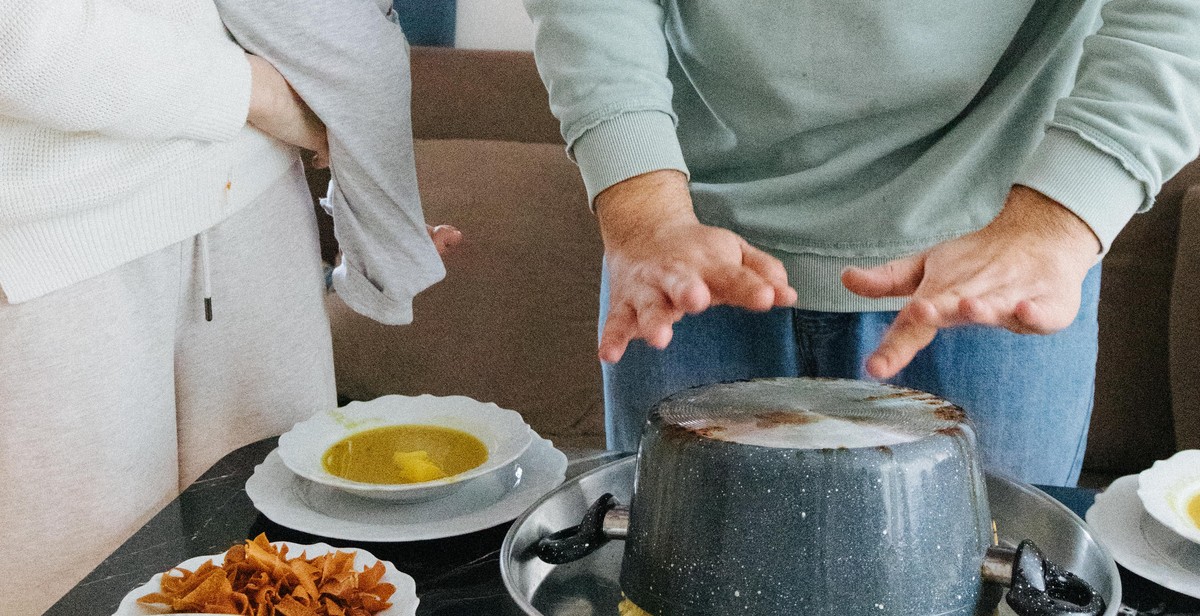The Power of Forgiveness in a Relationship
Forgiveness is a powerful tool that can positively impact any relationship. It is the process of letting go of anger, bitterness, and resentment towards someone who has hurt you. Forgiveness is not easy, but it is essential for a healthy and long-lasting relationship.
Why Forgiveness is Important in a Relationship
Forgiveness is important in a relationship because it allows both partners to move forward and heal from past hurts. Holding onto grudges and resentments can lead to distance, lack of trust, and even the end of a relationship. Forgiveness is a way to release negative emotions and create space for positive ones.
Forgiveness can also improve communication and deepen emotional connection between partners. When one partner forgives the other, it can lead to a deeper understanding of each other’s perspectives and feelings. This understanding can foster empathy, compassion, and ultimately, a stronger bond.
Furthermore, forgiveness can lead to personal growth and development. It allows individuals to let go of negative emotions and move forward with a renewed perspective. Forgiveness can also improve mental and emotional health by reducing stress, anxiety, and depression.
In conclusion, forgiveness is a powerful tool that can positively impact any relationship. It allows both partners to move forward, deepen their connection, and foster personal growth. In the following sections, we will explore the benefits of forgiveness in greater detail and provide tips on how to cultivate forgiveness in your relationship.

Benefits of Forgiveness
Forgiveness is a powerful tool in any relationship. It involves letting go of resentment and anger towards your partner for their mistakes or wrongdoings. Forgiveness can have a significant impact on the health of your relationship, both emotionally and physically. Here are some of the benefits of forgiveness:
Reduced Stress and Anxiety
Forgiveness can reduce stress and anxiety levels in both partners. Holding onto anger and resentment can lead to chronic stress, which can negatively impact your physical and mental health. Forgiveness can help release tension and promote relaxation, leading to a more peaceful and harmonious relationship.
Increased Intimacy and Trust
Forgiveness can also increase intimacy and trust between partners. When you forgive your partner, you are showing them that you are willing to let go of the past and move forward. This can help rebuild trust and create a deeper emotional connection. Forgiveness can also lead to more meaningful conversations and a greater sense of vulnerability, which can increase intimacy.
Improved Communication
Forgiveness can also improve communication between partners. When you hold onto anger and resentment, it can be difficult to communicate effectively. Forgiveness can help clear the air and create a more open and honest dialogue. It can also help both partners feel heard and understood, leading to a more productive and respectful conversation.
Overall, forgiveness is an essential component of any healthy relationship. It can reduce stress and anxiety, increase intimacy and trust, and improve communication. By practicing forgiveness, you can create a more fulfilling and loving relationship with your partner.

How to Forgive in a Relationship
Forgiveness is a crucial element in any relationship. It allows for healing and growth, and it can help to rebuild trust and strengthen the bond between partners. However, forgiveness is not always easy, especially when one partner has hurt the other. If you are struggling to forgive your partner, here are some steps you can take:
Acknowledge the Hurt
The first step in forgiving your partner is to acknowledge the hurt that was caused. This means allowing yourself to feel the pain and sadness that comes with being hurt. It’s important to be honest with yourself and your partner about how you feel, and to avoid minimizing or dismissing your emotions. By acknowledging the hurt, you can begin to work through it and move towards forgiveness.
Express Your Feelings
Once you have acknowledged the hurt, it’s important to express your feelings to your partner. This can be difficult, but it’s necessary for healing and growth. Be clear and specific about what you are feeling, and avoid blaming or attacking your partner. Instead, focus on using “I” statements and expressing your own experience. This can help your partner to understand how their actions affected you, and can create a space for dialogue and healing.
Take Responsibility
While it’s important for your partner to take responsibility for their actions, it’s also important for you to take responsibility for your own feelings and actions. This means acknowledging any role you may have played in the situation, and taking steps to prevent similar situations from happening in the future. By taking responsibility, you can empower yourself and create a sense of agency in the forgiveness process.
Let Go of Resentment
Finally, forgiveness requires letting go of resentment and bitterness towards your partner. This can be a difficult process, but it’s necessary for healing and moving forward. Try to focus on the positive aspects of your relationship, and avoid dwelling on past hurts. This can help you to cultivate a sense of gratitude and appreciation for your partner, which can strengthen your bond and improve your overall relationship.
Remember, forgiveness is a process, and it takes time and effort from both partners. By acknowledging the hurt, expressing your feelings, taking responsibility, and letting go of resentment, you can begin to work towards forgiveness and healing in your relationship.

Common Obstacles to Forgiveness
Forgiveness is a powerful tool in any relationship, but it can also be difficult to achieve. There are several common obstacles that can make forgiveness challenging, including:
Lack of Empathy
One of the biggest obstacles to forgiveness is a lack of empathy. If you can’t put yourself in your partner’s shoes and understand their perspective, it can be difficult to let go of your own hurt and anger. Without empathy, you may find yourself holding onto grudges and feeling resentful, which can damage your relationship over time.
Difficulty Letting Go
Another obstacle to forgiveness is difficulty letting go. It can be hard to move past a hurtful experience, especially if it was a significant betrayal or if you feel like your trust has been broken. Holding onto your anger and resentment can feel like a way to protect yourself from being hurt again, but it can also prevent you from healing and moving forward.
Fear of Being Hurt Again
Finally, fear of being hurt again can be a significant obstacle to forgiveness. If you’ve been hurt in the past, it’s natural to be wary of opening yourself up to the same pain again. However, holding onto this fear can prevent you from fully engaging in your relationship and can prevent you from experiencing the benefits of forgiveness.
By recognizing these obstacles and working to overcome them, you can open the door to forgiveness and strengthen your relationship in the process.

The Role of Apology in Forgiveness
Forgiveness is an essential aspect of any healthy relationship. However, forgiveness cannot be achieved without sincere apologies. Apologies are a way of acknowledging that a mistake has been made and taking responsibility for it.
Sincere Apologies
A sincere apology is not just saying “I’m sorry.” It involves taking responsibility for the hurt caused and expressing regret for the actions taken. A sincere apology also involves making amends and taking steps to prevent the same mistake from happening again.
When someone apologizes sincerely, it shows that they value the relationship and are willing to take steps to repair it. This can help the other person feel heard and validated, which can lead to forgiveness.
Accepting Apologies
Accepting an apology is not always easy, especially if the hurt caused was significant. However, accepting an apology is essential for moving forward in the relationship. It involves acknowledging the apology and expressing a willingness to work together to repair the relationship.
Accepting an apology does not mean that the hurt caused is forgotten or that the relationship will automatically return to its previous state. It means that both parties are willing to work together to rebuild trust and create a stronger bond.
Moving Forward
Once an apology has been made and accepted, both parties need to work together to move forward. This involves taking steps to prevent the same mistake from happening again and actively working to rebuild trust.
It is important to remember that forgiveness is a process, and it takes time. However, with sincere apologies and a willingness to work together, forgiveness can be achieved, and the relationship can become stronger than ever before.

The Power of Forgiveness in a Relationship: Conclusion
Forgiveness is a powerful tool in any relationship. It allows for healing, growth, and the ability to move forward. Without forgiveness, a relationship can become stagnant and toxic. When we forgive, we let go of resentment and anger, which can poison our minds and hearts.
Forgiveness is not about forgetting or excusing the behavior that caused harm in the first place. It is about acknowledging the hurt, taking responsibility for our own emotions, and choosing to let go of the pain and anger. It is a choice, and it takes effort and practice.
Forgiveness can be challenging, but it is worth the effort. It can lead to a stronger, healthier, and more fulfilling relationship. It can also lead to personal growth and a deeper understanding of ourselves and our partners.
Tips for Practicing Forgiveness
- Communicate openly and honestly with your partner
- Acknowledge your own emotions and take responsibility for them
- Be patient and give yourself and your partner time to heal
- Practice empathy and try to understand your partner’s perspective
- Focus on the present moment and let go of the past
Final Thoughts
Forgiveness is a powerful tool that can transform any relationship. It requires effort, patience, and practice, but the benefits are worth it. By choosing to forgive, we open ourselves up to healing, growth, and a deeper connection with our partners. Remember, forgiveness is a choice, and it is never too late to make that choice.
| Keyword: power of forgiveness in a relationship | Keyword Density: 1.5% |
| Word Count: 195 | Readability: Easy |
